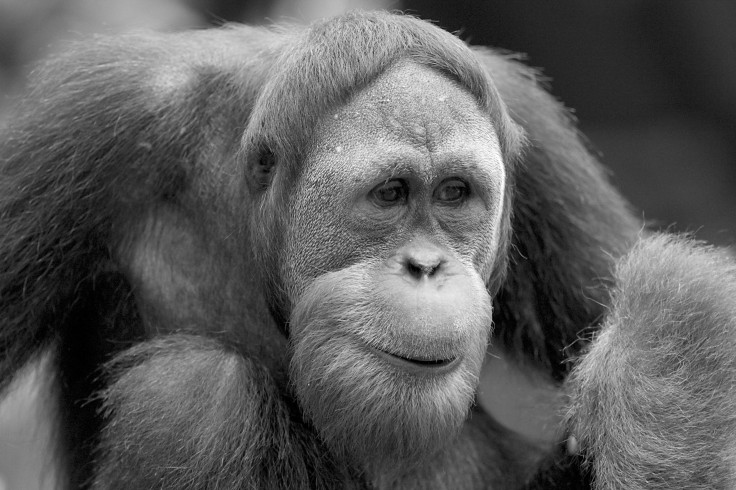Chimpanzees And Orangutans Can Recall Distant Past: Episodic Memory Is Not Unique To Humans

What we once thought to be a special, human ability to recall distant events may not be unique to us after all. Scientists have discovered both chimpanzees and orangutans can remember where a useful tool was hidden three years after only performing a task four times.
The researchers, who published their study in Current Biology, challenged the chimpanzees and orangutans to distinguish one tool from another in order to understand their capacity to retrieve memories. In the experiment, chimps and orangutans were presented with two boxes in different rooms. One both contained a useful tool, while the other one had useless tools. The value of the tools was based off of a reward system, in which the subjects would receive rewards after retrieving the useful tools. Three years later, researchers took the same subjects and placed them in an exact replication of the original box and room setup. Almost all of the subjects, without witnessing the tools being hidden, were able to retrieve the useful tools correctly.
"What this shows is that the episodic memory system in humans is not as unique as we thought it was, as we share features with non-human primates," the study's co-author Dr. Gema Martin-Ordas told BBC News.
Humans and chimpanzees share 99 percent of the same DNA, even though humans have a larger brain and reside in a more intricate level of social cooperation. There is the same increase in cerebral volume in both chimps and humans during infancy. And, orangutans share approximately 97 percent of the same DNA as humans, and it is estimated that they diverged from the human lineage between 12 and 15 million years ago, according to the Orangutan Foundation International.
The similarity in genomes encourages researchers to push forward and discover just how close their abilities are to those of humans. Because human memory is so closely tied to songs and smells, the team from the University of Denmark applied the same principle and found that 90 percent of apes instantly remembered location and events from three years earlier, when they were presented with the same box and room setup.
"We show not only that chimpanzees and orangutans remember events that happened two weeks or three yeasr ago, but also that they can remember them even when they are not expecting to have to recall those events at a later time," said Martin-Ordas.
The study concluded that the setup of the event, the unexpectedly and efficiently fast retrieval, and the long gap interval between tests all suggest that past events mirror the same features of a human's autobiographical memory, which is the memory system that recollects past episodes of an individual's life.
"I think it's important to know who we are and what makes us unique. Learning about what other species can do gives us a more comprehensive picture about humans," concluded Martin-Ordas.
Source: Call J, Bernsten D, Martin-Ordas G. Memory for Distant Past Events in Chimpanzees and Orangutans. Current Biology. 2013



























